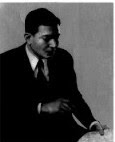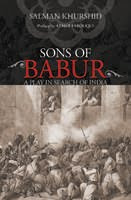How MacDonnell led to the decline of Urdu
 For years now the decline of Urdu in India has been a subject of discussion and debates. While there are several instances that caused severe blow to the interest of Urdu, I believe it was Sir Antony MacDonnell's (pic above) stint as the Lieutenant Governor of the United Provinces of Agra and Oudh that caused major irreparable damage.
For years now the decline of Urdu in India has been a subject of discussion and debates. While there are several instances that caused severe blow to the interest of Urdu, I believe it was Sir Antony MacDonnell's (pic above) stint as the Lieutenant Governor of the United Provinces of Agra and Oudh that caused major irreparable damage.Soon after he gained charge of the provinces, several deputations met him pressing for the use of Hindi as the official language of courts. Finally in April 1900, MacDonnell issued orders that allowed the optional use of Devanagari script in courts. While the orders did not completely displace Urdu from the position it had enjoyed for decades, it infuriated the votaries of Urdu as the decision took them by surprise.
In his earlier posting in Bihar, MacDonnell had lent his support to Nagari script, and this time Urdu intelligentsia lost no time in coming together to oppose him. As a response, Urdu Defence Association was formed and protest meetings were held in Aligarh, Allahabad and Lucknow.
Mohsin-ul-Mulk who was the secretary of the Aligarh College Committee took the lead. He had filled the void created after the death of Sir Syed Ahmad and he took command of the Urdu Defence Association. A huge support base to the Association came from Urdu-knowing lawyers based in Allahabad.
MacDonnell started feeling the heat and made his disapproval clear to the members of the Association. As he openly criticised the organisation and spoke against it on several occasions, many Muslim notables fearing a backlash from the government backed out from it. As a result, a large number of landlords and Nawabs stayed away from the Association thus robbing it of valuable intellectual and monetary benefits. Prominent among them being Nawab Lutf Ali of Chhatari.
Mohsin-ul-Mulk's involvement meant that the entire might of the Mohammedan Anglo Institute was behind the Urdu Defence Association. The British government was giving financial aid to the Aligarh Institute and MacDonnell decided to use it for his advantage. He made it clear that if Mohsin-ul-Mulk continued to stand behind the Urdu Defence Association the aids and grants would be in jeopardy and he would have to resign as secretary of the College Committee.
Mohsin-ul-Mulk had a tough decision to make. He decided to resign from the honorary secretaryship of the College. However, he had to change his decision under mounting public pressure including letters from prominent Urdu writers and personalities. The Urdu movement thus lost a towering leader and guide.
Till the period MacDonnell was in the province, Mohsin-ul-Mulk could not do much for the cause of Urdu. Losing financial and administrative support would have spelled doom for the Aligarh Institute, and it was only after MacDonell's exit from the province that Mohsin-ul-Mulk organised the Anjumman-i-Taraqqi-i-Urdu.
However, much steam had been lost and Urdu had lost ground. What were the reasons that made some people think that Hindi should replace Urdu? A question of language acquired religious dimension. Much of it stemmed from the fact that exponents of both the languages did their best to create as wide a gulf as possible. The charge from both the sides was that the respective scripts were not in sync with the thinking and aspirations of the common man.

As a result words drawn heavily from Sanskrit and Arabic/Persian found their way in what was earlier seen as identical languages with different scripts. I am reminded of the great Altaf Hussain Hali who is known for his Musaddas. Hali wrote the Musaddas - on the rise and fall of Muslims - at the insistence of Sir Syed Ahmad.
However, his masterpiece which was appreciated by the common readers had to face a barrage of criticisms from several quarters. He was widely criticised for the use of Hindi words in his writings. He used to write in simple Urdu and was a staunch believer in bridging the Hindi-Urdu divide.
Hali criticised Muslims for not making efforts to learn Hindi and Sanskrit and using difficult Arabic and Persian words. At the same time he advised that Hindus should use and learn Urdu. If there were more people like Hali on the scene I am sure the situation would have been much different.
But it was not to be. In 1891, around 24 Hindi newspapers had an estimated circulation of about 8,000 while 68 Urdu newspapers had a combined circulation of over 16000. In 1911, 116 Urdu newspapers had a circulation of about 76000 whereas 86 Hindi newspapers had circulation close to 78,000.


good diggning in the history Danish bhai.
ReplyDeletecan you give us the source for those circulation figures of Urdu and Hindi newspapers?
Thank you. Please write your name instead being anonymous. The figures have been taken from the book Indian critiques of Gandhi by Harold G Coward.
ReplyDeleteyes ! you show the real fact between Urdu and Hindi .Most of our poets highly criticize regarding Urdu and Hindi is the same language, Although Urdu and Hindi has greater importance seperately .
ReplyDeleteUrdu vs hindi or muslim vs hindu:
ReplyDeleteDear Danish khan sahab,
I wont blame Mcdonalld as person; it was politics of the time.As reviewd in my book " urdu/hindi an artificial divide'( u know abt it) hindus considered Urdu as muslim and foreign and hindu as hindu and local/india; this view ( wrong) drove the politics. In the 5th major attempt to ' replace urdu by hindi' hindus succeeded; governor happend to be Mr Macdonald in 1900.
This is really rooted in racist policy of hindus and judeo-christian bible that links languages with race/religion, greatest fraud ever. Qoran condemns it as dicussed in my book. Will love to meet u in my next london trip.